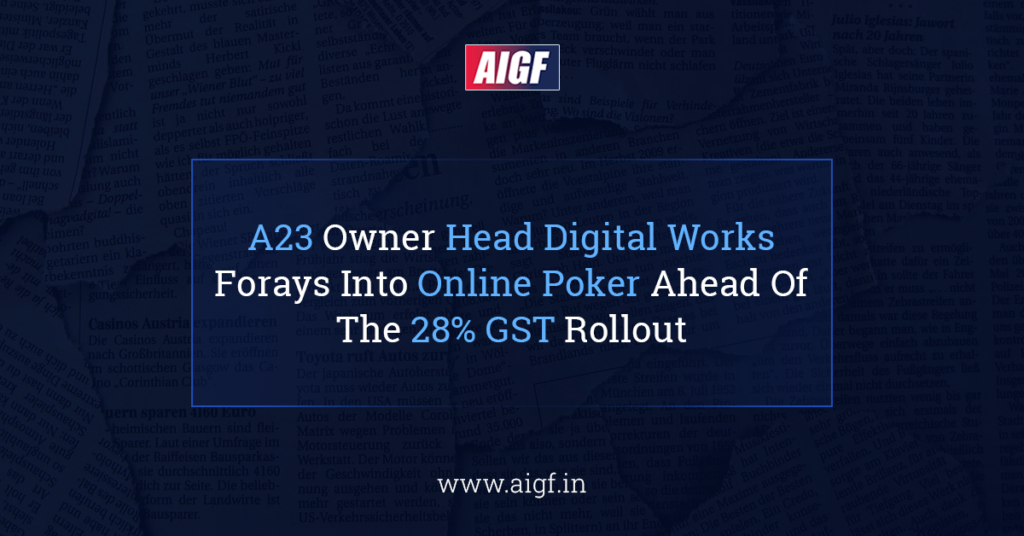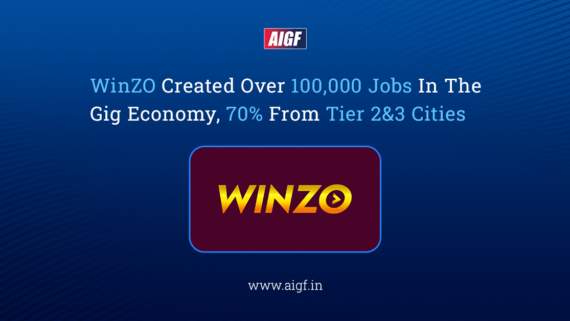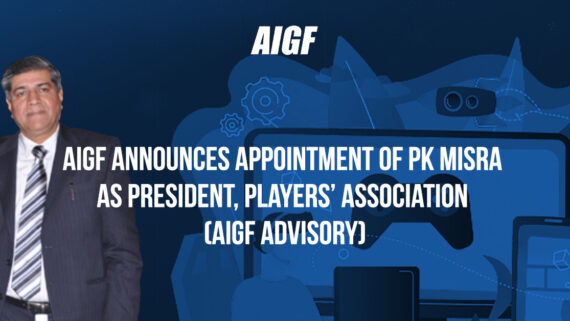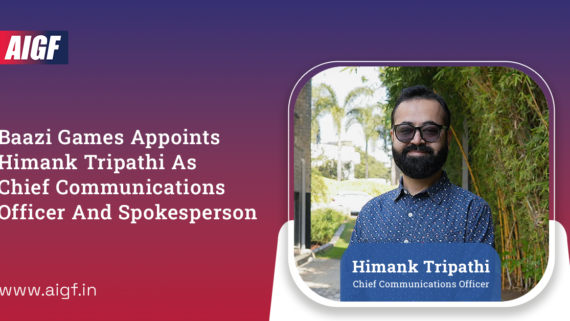Head Digital Works’ Senior Vice President of Business Strategy Siddharth Sharma predicts that pay-to-play gaming will account for almost 20% of their revenue in the next 3 years.
A23 Owner Head Digital Works Forays Into Online Poker Ahead Of The 28% GST Rollout
Head Digital Works, owner of A23, an online rummy platform, is venturing into online poker to expand its portfolio.
This launch is happening when pay-to-play gaming platforms in India are getting ready for the upcoming 28% Goods and Services Tax (GST) which is set to come into effect on October 1st.
“While the new GST regime will test the resilience of the business, we are focussed on maintaining a long-term outlook for our business. This phase will bring out multiple avenues to sensibly pivot and propel our business forward,” Siddharth Sharma, senior vice president of business strategy at Head Digital Works, told Moneycontrol.
Sharma thinks that online poker is the perfect move for the company since they’re all about playing card games that are based on skill.
“We remain confident that A23’s Poker launch will enable us to unlock more value and scale in the card-based gaming segment while maintaining our fundamental ethos of profitable sustainable growth,” he said.
Sharma predicts that pay-to-play games will account for around 20% of the business’s revenues in the next few years.
“As a market, poker is not nearly as large as rummy and I’m not sure it will be the same size as rummy in the future but it is a highly profitable and attractive market to be in,” Sharma said.
The primary reason for this is that poker is played at a faster pace than rummy, resulting in an increase in the number of games a player would have played. This, in turn, leads to an increase in revenue per player, despite the low take rate of poker. Currently, poker has a take rate of 3-5%, compared to the 10-12% of online rummy. Furthermore, the retention expense of poker is much lower than that of rummy, Sharma added.
Head Digital Works, majority-owned by Clairvest, a Canadian private equity firm, is taking a step-by-step approach to rollout over the next year, Sharma said.
“This is not a business where you come, splash the cash and win the market. So you have to play the patient game. Not be too conservative, but at the same time not be excessively aggressive either,” he said.
The launch comes almost six months after the government notified gaming-related changes in the IT Act 2021 in April 2023, and SROs are yet to be notified to regulate the sector. It is expected that SROs will decide whether or not pay-to-play games are allowed to operate in India.
This change will enable A23 Poker to compete with online poker operators like PokerBaazi, Adda52, SpartanPoker, and platforms like Mobile Premier League (MPL).
However, Sharma adds that the market is still in its early stages, although it is growing, as a lot of offline consumption is yet to take place online.
“There is a decent amount of category building that’s being done on social gaming through the Zyngas of the world, but it hasn’t translated to real money yet. I don’t think poker will become a monopolistic market and I believe there’s room for large operators to come in and grow this market,” he said.
Tackling steep learning curve
Poker is way harder to learn than other pay-to-play games like rummy or fantasy sports, so it takes a lot of work to get into it and understand how it works.
According to Sharma, they plan to address this through a variety of events, including poker schools, training sessions, and offline events.
The company plans to use their knowledge of player behaviour and analytics from their online rummy product. Sharma said there’s not much difference between online rummy players and poker players, so this launch could be a great opportunity for them to get a new group of players on board.
“This is part of a larger five-year roadmap for us to build ourselves up as a well-established leading operator in the poker space,” Sharma said.
Revenue from pay-to-play gaming accounted for 77% of India’s gaming sector revenue in 2022 (Rs 13,500 crores) and is expected to grow Rs 16,700 crore in 2023 and Rs 23,100 crores in 2025, as per a recent report by FICCI-EY.
Credit: Moneycontrol











Comments
Comments are closed.